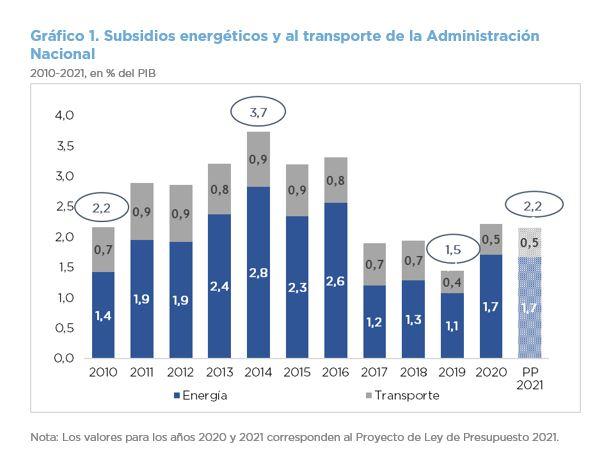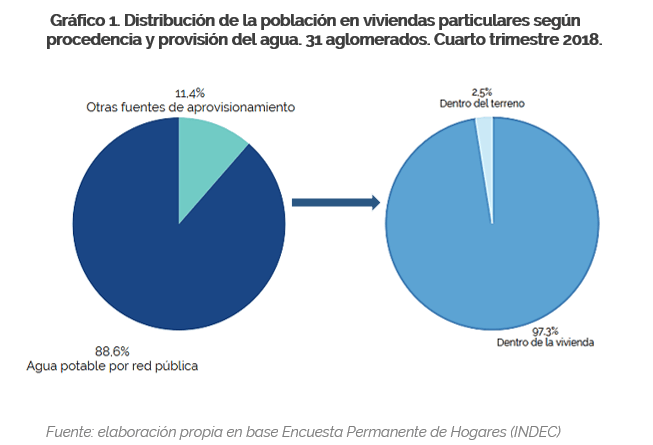
by Juan Fourcaud | Oct 16, 2020 | Budget Law
Next year’s projected expenditure on energy and transportation subsidies amounts to AR$805.8 billion, which is equivalent to 2.2% of Gross Domestic Product (GDP), at the same level of that foreseen for 2020. Of these funds, 77.4% is allocated to subsidize the gas and electricity sector, and 22.6% to transportation.
- Since 2017, energy subsidies have grown 0.5% of GDP and in 2021 they will be at 1.7%, same as this year. The highest record was in 2014, with 2.8%.
- The most significant allocations are for the electricity sector, with AR$446.6 billion foreseen in the Budget Bill for 2021, a real increase of 4%.
- Users will face 43% of the estimated cost of electricity next year, a level comparable to that of 2016.
- The energy deficit in the last decade averaged USD2.98 billion, contrasting with the trade surplus of that time.
- A total of AR$71.7 billion will be allocated in subsidies to natural gas supply, which implies an increase of 5.3% with respect to the expected for 2020.
- A rise in subsidies to natural gas demand is also foreseen, including a higher subsidy to liquefied gas cylinders.
- Transportation subsidies would remain at 0.5% of GDP, with an increase for motor vehicles and a cut for trains.
- Travel on working days will increase 200% and the AR$12.7 billion to finance social fare implies a drop in real terms of 17.7% in relation to the expected for 2020.
- In the last months, 91% of the costs were covered with subsidies and the passenger load factor was 5%.

by Nicolas Perez | Sep 23, 2019 | Sustainable Development Goals
This is the first in a series of reports to be prepared by the Argentine Congressional Budget Office (OPC) to analyze Argentina’s progress in achieving the United Nations Sustainable Development Goals from a budgetary perspective. As there is no international consensus on the SDG budget evaluation methodology, the OPC used its own tool.
The focus is on SDG 6, Clean Water and Sanitation, and SDG 7, Affordable and Clean Energy. In accordance with the provisions of the current year’s Budget Law, the actions to be carried out by Argentina related to the SDG 6 will require AR$25.48 billion, while those related to energy issues have an initial appropriation of AR$212.01 billion.
By 2023, Argentina has committed to universal access to drinking water service through the public network, which would imply, according to INDEC population projections, the addition of 9.5 million people. As for the sewage network, the commitment to universalization was set for the year 2030, bringing the number of citizens to be included up to that year to 26.4 million.
Argentina adopted three targets linked to SDG 7. That of “universalizing access to affordable, reliable and modern energy services” implies meager increases in coverage, since according to the latest available data 98.8% of households had access to electricity and 97.2% to clean fuels for cooking; that of “significantly increasing the proportion of renewable energy” implies using 10.9% of green sources to supply total consumption this year; the most challenging is to increase energy efficiency (total energy vs. GDP), changing the trend shown in recent years.


